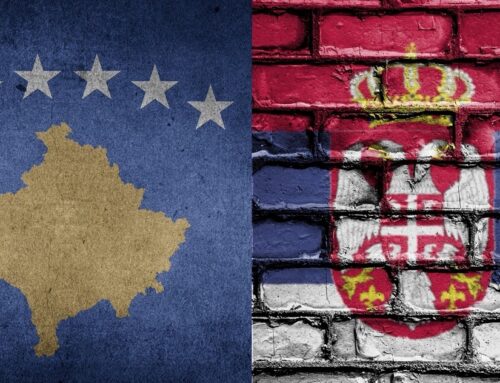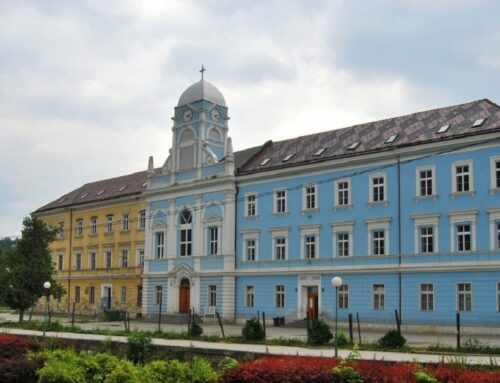EU has invested nearly €2 billion in renewable energy projects over the past 4 years – yet little progress has been made on the commitments made in the Sofia Declaration.
The recent report produced by Mario Draghi, aimed to make Europe more competitive globally, has led to a push for deregulation in the EU [1]. As many green activists and organizations feared, environmental protections would be among the first to be targeted. Commissioner Von der Leyen’s efforts to “simplify” and “cut the red tape”, [2] announced last week, may have given Western Balkan (WB) capitals some hope that climate requirements in their accession negotiations could become a matter of compromise in the future. The European Union, however, claims that the new policies will simply reduce paperwork and will not affect Europe’s climate goals. Regardless, even if EU was to lower its environmental standards, WB countries would still have a long way to go before meeting them.
Lack of political will
The region has experienced the effects of climate change in various environmental disasters in recent years [3] [4]. Many cities in the region have poor air quality, most notably Sarajevo which during the wintertime often tops the list of cities with the worst air quality in the world [5]. However, despite some pressure from environmental activists and non-governmental organizations – environmental issues do not seem to be even among priorities for the Western Balkan public. In a poll conducted by the International Republican Institute, environmental issues and pollution were only mentioned by one percent of the respondents, in only two of the six WB countries – Bosnia and Herzegovina and Serbia [6]. Understandably, economy, corruption, healthcare, and unemployment dominate among the issues WB voters deem as top priorities. The lack of interest in environmental issues by the public is reflected in the political elite’s nearly non-existent progress in the green energy transition. In 2020, at a summit in Sofia, leaders of the Western Balkan countries pledged to work towards the 2050 target of a carbon neutral continent together with the EU. Despite this pledge, reports conducted on behalf of the EU since then paint a dark picture. Sulphur dioxide emissions in 2023 from coal plants in Bosnia, Kosovo, North Macedonia, and Serbia were 5.7 times higher than allowed per the directive signed in 2018 under the Energy Community Treaty [7] [8]. Bosnia, Serbia, and Montenegro – countries which committed to closing their coal-powered plants by the end of 2023 have failed to close a single one. Overall, six years after the Large Combustions Plants Directive (LCPD) compliance deadline passed in the Energy Community, the situation remains worrying [9]. Emissions covered by the National Emissions Reduction Plan have barely decreased since 2018 for sulphur dioxide and nitrogen oxides and have even increased for dust [10]. None of the opt-out plants have closed.
Health effects on the population
For the majority of the WB countries, coal accounts for over 70 percent of electricity production [11]. In cities housing the coal plants such as Tuzla, air pollution is causing significant harm not only to the environment, but to the health and wellbeing of its residents. While the World Health Organization (WHO) states that no amount of air pollution can be considered safe, particulate matter (PM) with a size of 10 micrometers (PM10) or 2.5 micrometers or less (PM2.5) leads to the greatest health burden [12]. According to the annual report produced by Comply or Close, annual mean PM concentrations in Tuzla in 2020 were nine times higher than the WHO guidelines. The health toll of this persistent poor air quality is significant: In Bosnia and Herzegovina, poor air quality leads to 5100 premature deaths per year, including 1,355 in Tuzla alone [13]. In Serbia, air pollution was the 7th leading cause of death, resulting in 12,700 deaths across the country [14]. Inhaled particles from air pollution enter the bloodstream, harming the lungs and heart, increasing the risk of strokes, and contributing to premature death. Poor air quality is linked to chronic and acute respiratory diseases like bronchitis and asthma, while also impairing children’s development and contributing to diseases like obesity [15]. Emerging evidence associates air pollution with dementia and shows that particles can reach the placenta during pregnancy, potentially harming unborn babies.
EU investments and interests
Drastic changes are needed, if not for the health and quality of life of the citizens of Western Balkan countries, then for their EU membership aspirations. The EU has been heavily investing in the region’s energy transition. Green energy projects benefitted from 21 Economic Investment Plan (EIP) flagship investments in 2020-2024, which provided €1.8 billion towards investments in renewable energy, energy efficiency and electricity transmission [16]. The Western Balkans Investment Fund contributed €386.7 million in grants to these investments, of which €380.2 million was EU IPA funding and €6.5 million was donated directly by member states.
There are several reasons the EU is investing in the region’s energy transition. A key motivation is improving energy security by reducing dependence on Russian energy supplies, a strategy shaped by past disruptions such as Russia’s 2009 gas cutoff and the 2014 annexation of Crimea. By enhancing interconnectivity between national energy grids and developing alternative supply routes like the Southern Gas Corridor and liquid natural gas (LNG) infrastructure, the EU seeks to prevent external powers from monopolizing local markets and using energy as a political tool. Additionally, the EU aims to integrate the Western Balkans into its energy market by transplanting its legal framework and market principles. Through the Energy Community, the EU pushes for the liberalization of gas and electricity markets, creating a seamless energy market governed by EU standards. This effort both aligns the region with the EU acquis and counters external geopolitical influences, ensuring greater stability and resilience. Finally, the EU’s investment in the transition allows it to avoid carbon leakage into its market.
Despite the massive influx of investment in green energy, and the various strategic and economic benefits it offers the receiving states, respective governments have been moving terribly slowly on introducing policies needed to liberalize their markets and support environmentally sustainable production.
Issues facing the Western Balkan Six
Corruption is one of the main issues plaguing the countries of the region and given the massive influx of funds from the EU – it has embedded itself in the green energy sector as well. In Bosnia and Herzegovina, solar energy production licenses are reserved for a limited number of ‘qualified’ producers, which are granted decade long contracts at a fixed price [17]. The only way for citizens seeking to open a solar plant themselves is to be on a waitlist and hope that one of the qualified producers will not renew their highly profitable contract at the end of ten years. Hydropower plants are erected with government’s consent, without proper examination of their impact on biodiversity and the environment, leading to devastating loss of animal life and drying up of riverbeds [18]. Montenegro- the WB country farthest along on its path to membership – has finalized only one out of 58 measures, meaning two percent of measures it is legally bound to meeting by the Green Deal [19]. Another major problem facing the region is its mass emigration. According to the World Bank, one out of six current workers in the region will need to upskill in their current jobs or retrain into alternative green jobs in the medium term [20]. For a rapidly aging, primarily low-skilled workforce left in the WB region, this will be a difficult feat to achieve.
Silver lining
Challenges persist but the outlook is not entirely bleak. The Western Balkan nations seeking to find an example to emulate to fuel their own green energy transition do not need to look far. Albania – one of the six Western Balkan countries – has emerged as a clear leader in renewable energy. One of the poorest countries in Europe has transitioned to producing 100% of its energy from renewable sources, primarily from hydropower [21]. However, as hydropower is the renewable source most disruptive to the environment due to its dependence on rivers, the Albanian government is increasingly moving to solar and wind energy. It has recently declared its river Vjosa – one of Europe’s last free-flowing wild rivers – a national park and preserved it from investors seeking to build dams [22]. As a country suffering from similar ailments in its other segments of society, through its effective transition to renewable energy, and protection of its nature and biodiversity – Albania can serve as a model for other WB countries seeking to fulfill their Sofia Declaration commitments [23].
References:
[1] https://commission.europa.eu/topics/eu-competitiveness/draghi-report_en
[6] https://www.iri.org/news/iri-2024-western-balkans-poll/
[7] https://bankwatch.org/wp-content/uploads/2024/09/2024_09_17_Comply-orClose.pdf
[8] https://energy-community-treaty.eu/
[9] https://www.eea.europa.eu/policy-documents/directive-2001-80-ec-large
[10] https://www.complyorclose.org/
[11] https://webalkans.eu/en/themes/connectivity/energy/
[12] https://www.who.int/news-room/fact-sheets/detail/ambient-(outdoor)-air-quality-and-health
[13] https://www.researchgate.net/publication/344694139_/
[14] https://www.stateofglobalair.org/resources/report/air-quality-and-health-serbia
[15] https://www.niehs.nih.gov/health/topics/agents/air-pollution
[16] https://www.wbif.eu/sectors/energy/
[17] https://www.wolftheiss.com/insights/generating-electricity-from-renewable-sources-in-cee-see/
[20] https://www.worldbank.org/en/region/eca/publication/western-balkans-6-ccdr
[21] https://www.iea.org/countries/albania/renewables
[22] https://uk.news.yahoo.com/albania-green-european-country-month-083522917.html?guccounter=1





